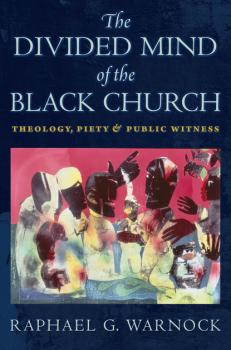Religion, Race, and Ethnicity
Скачать книги из серии Religion, Race, and EthnicityPublic Religion and Urban Transformation
American cities are in the midst of fundamental changes. De-industrialization of large, aging cities has been enormously disruptive for urban communities, which are being increasingly fragmented. Though often overlooked, religious organizations are important actors, both culturally and politically in the restructuring metropolis. Public Religion and Urban Transformation provides a sweeping view of urban religion in response to these transformations. Drawing on a massive study of over seventy-five congregations in urban neighborhoods, this volume provides the most comprehensive picture available of urban places of worship-from mosques and gurdwaras to churches and synagogues-within one city. Revisiting the primary site of research for the early members of the Chicago School of urban sociology, the volume focuses on Chicago, which provides an exceptionally clear lens on the ways in which religious organizations both reflect and contribute to changes in American pluralism. From the churches of a Mexican American neighborhood and of the Black middle class to communities shared by Jews, Christians, Hindus, and Muslims and the rise of «megachurches,» Public Religion and Urban Transformation illuminates the complex interactions among religion, urban structure, and social change at this extraordinary episode in the history of urban America.
The Divided Mind of the Black Church
A revealing look at the identity and mission of the black church What is the true nature and mission of the church? Is its proper Christian purpose to save souls, or to transform the social order? This question is especially fraught when the church is one built by an enslaved people and formed, from its beginning, at the center of an oppressed community’s fight for personhood and freedom. Such is the central tension in the identity and mission of the black church in the United States.For decades the black church and black theology have held each other at arm’s length. Black theology has emphasized the role of Christian faith in addressing racism and other forms of oppression, arguing that Jesus urged his disciples to seek the freedom of all peoples. Meanwhile, the black church, even when focused on social concerns, has often emphasized personal piety rather than social protest. With the rising influence of white evangelicalism, biblical fundamentalism, and the prosperity gospel, the divide has become even more pronounced.In The Divided Mind of the Black Church , Raphael G. Warnock, Senior Pastor of the historic Ebenezer Baptist Church, the spiritual home of the Rev. Dr. Martin Luther King, Jr., traces the historical significance of the rise and development of black theology as an important conversation partner for the black church. Calling for honest dialogue between black and womanist theologians and black pastors, this fresh theological treatment demands a new look at the church’s essential mission.

